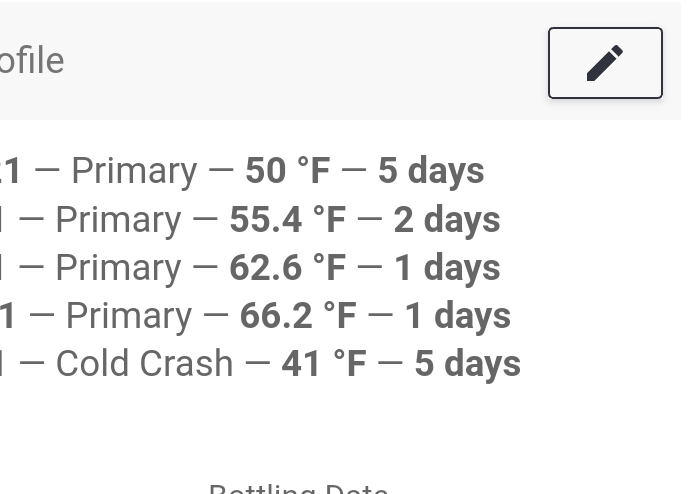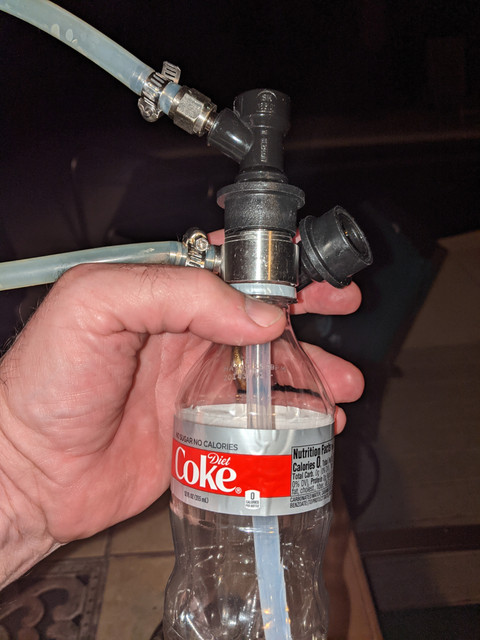I’m looking into doing my first lager. I got silly,bought a fridge to turn into my kegerator, and now that leaves my keezer(5QFT) empty. But i'm getting a little confused on steps, from the videos I have seen.
I do EBIAB. 5 gal batches,(10 Gal boil Kettle). I can do step mashes if need be( seen some that say do step, some say don't).
so my real question is:
do I do step mash(s) If so, what temps and length of time? Explanations for reason not necessary.
Do I do a 90 min boil or should I stick to a 60 min boil?(have seen where people recommend 90, and some go with 60) But I would rather go with what the great people of HBT say.
so far, the one thing that has been consistent is that I should pitch at about 50 F, and use double the amount of yeast that I would for an Ale, i.e. at least 2 packs (and if liquid a 2l starter)
Once in fermentor i leave at 50 for (if i am remember correctly for 10 days) then bump up to 55 for 3 days. then transfer to secondary ( I'm guessing my serving keg will be good enough) drop to 33F for 2-3 weeks. then carb for 2 weeks( set and forget method). Does longer at 33F server a better purpose?
I have been reading that to get a good lager is harder than an ale, Hince my questions. I am looking into brewing a recipe from Brewing Clasic Styles. Of course they go over the receipt, but that is it.
When I get around to doing my lager, it will be a experiment for me, so Time will not interfere with anything. But would like to try to produce a nice brew.
edit: when i Place my fermentor in my keezer, should I place my ink bird probe on the fermentor or in a glass of water?
I do EBIAB. 5 gal batches,(10 Gal boil Kettle). I can do step mashes if need be( seen some that say do step, some say don't).
so my real question is:
do I do step mash(s) If so, what temps and length of time? Explanations for reason not necessary.
Do I do a 90 min boil or should I stick to a 60 min boil?(have seen where people recommend 90, and some go with 60) But I would rather go with what the great people of HBT say.
so far, the one thing that has been consistent is that I should pitch at about 50 F, and use double the amount of yeast that I would for an Ale, i.e. at least 2 packs (and if liquid a 2l starter)
Once in fermentor i leave at 50 for (if i am remember correctly for 10 days) then bump up to 55 for 3 days. then transfer to secondary ( I'm guessing my serving keg will be good enough) drop to 33F for 2-3 weeks. then carb for 2 weeks( set and forget method). Does longer at 33F server a better purpose?
I have been reading that to get a good lager is harder than an ale, Hince my questions. I am looking into brewing a recipe from Brewing Clasic Styles. Of course they go over the receipt, but that is it.
When I get around to doing my lager, it will be a experiment for me, so Time will not interfere with anything. But would like to try to produce a nice brew.
edit: when i Place my fermentor in my keezer, should I place my ink bird probe on the fermentor or in a glass of water?























































![Craft A Brew - Safale BE-256 Yeast - Fermentis - Belgian Ale Dry Yeast - For Belgian & Strong Ales - Ingredients for Home Brewing - Beer Making Supplies - [3 Pack]](https://m.media-amazon.com/images/I/51bcKEwQmWL._SL500_.jpg)



